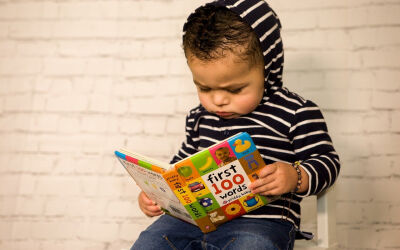
Emotional intelligence is a critical life skill that enables individuals to navigate the complexities of relationships, understand and manage their emotions, and empathize with others. Research has shown that reading can help children develop emotional intelligence, making it an essential skill for parents to foster in their children. In this article, we will explore the link between reading and emotional intelligence and provide some tips for parents to help their children develop this crucial skill.
The Link Between Reading and Emotional Intelligence
Reading is a powerful tool to develop emotional intelligence in children. Here are some ways in which reading can help develop emotional intelligence:
Develops Empathy
Reading exposes children to different characters and their emotions, which helps children understand and empathize with others. As children relate to and understand the feelings and experiences of the characters in the story, they become better equipped to understand and empathize with the people around them.
Improves Communication Skills:
Reading can help children develop their communication skills, as they learn to express their thoughts and feelings effectively. Children can practice their communication skills by discussing the books they have read with their parents or friends, which helps them learn to articulate their thoughts and feelings better.
Enhances Emotional Vocabulary:
Through reading children build their emotional vocabulary, which is the ability to recognize and understand different emotions. Children can learn to identify emotions through the characters’ experiences in the books they read, which can help them develop their emotional intelligence.
Develops Self-awareness:
By reading consistently children develop self-awareness, as they learn to identify and understand their own emotions. As children read about characters who experience different emotions, they can reflect on their own emotions and develop a better understanding of themselves.
Tips for Parents
Here are some tips for parents to help their children develop emotional intelligence through reading:
1. Encourage Reading
Encourage your children to read regularly by providing them with a variety of books that appeal to their interests. Make reading a fun and enjoyable experience by reading together as a family and discussing the books you read.
2. Ask Questions
Encourage your children to think critically about the books they read by asking questions. Ask them about the characters’ emotions, how they would feel in similar situations, and what they learned from the story.
3. Model Emotional Intelligence
As a parent, you can model emotional intelligence by expressing your emotions and teaching your children how to express their emotions in healthy ways. Encourage your children to talk about their feelings, validate their emotions, and help them learn how to manage their emotions effectively.
4. Teach Empathy
Teach your children empathy by encouraging them to think about others’ perspectives and experiences. Help them understand how their actions and words can impact others, and teach them to be kind, compassionate, and understanding towards others.
Conclusion
The link between reading and emotional intelligence is well established, and parents need to be aware of the significant benefits that reading can offer their children. By reading regularly and actively engaging with the material, children can develop empathy, communication skills, emotional vocabulary, and self-awareness, all of which are essential components of emotional intelligence. With the right guidance and support, parents can help their children become emotionally intelligent, compassionate, and successful individuals.
Find the best book for your kid after completing the 2-minute test for parents on our website!
FAQs
1. How can reading help children develop emotional intelligence?
Reading exposes children to different characters and their emotions, which helps children understand and empathize with others. As children relate to and understand the feelings and experiences of the characters in the story, they become better equipped to understand and empathize with the people around them.
2. How can parents help their children develop emotional intelligence through reading?
Parents can encourage their children to read regularly, ask questions about the books they read, model emotional intelligence, and teach empathy.






